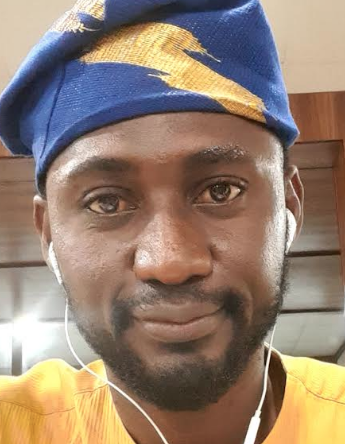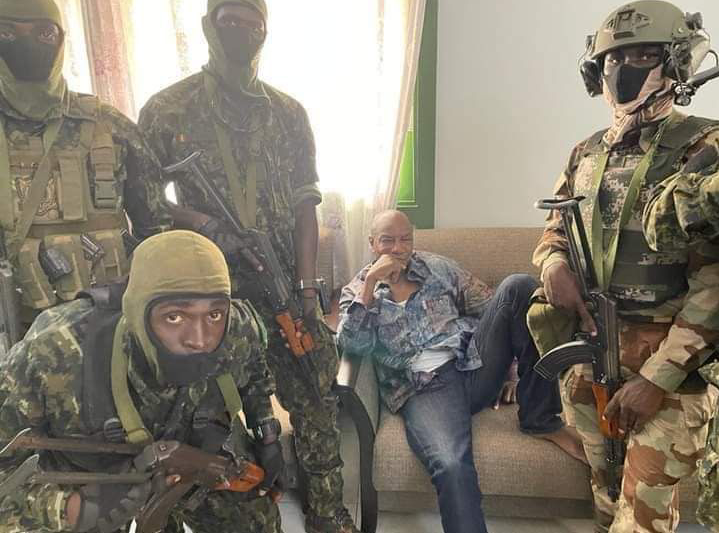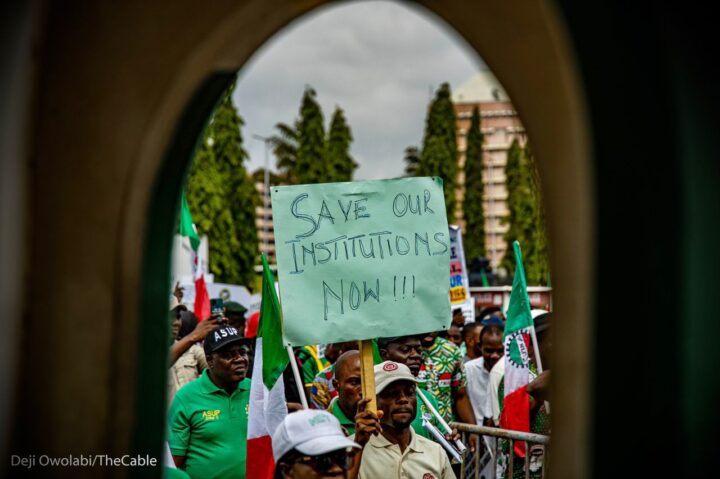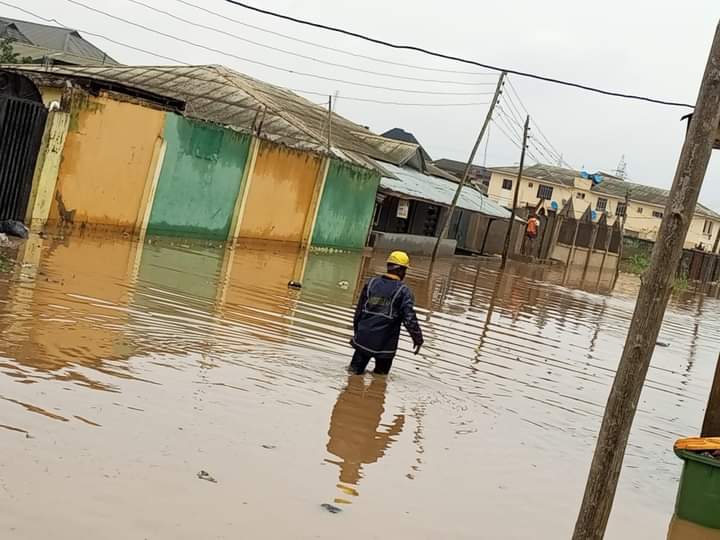The menace of drug abuse and drug trafficking is doing far more harm than we could imagine, they’re like conjoined twins that cannot be separated. The number of Nigerian youth getting involved in the use of hard drugs has continued to soar, while those trafficking them are also increasing. You could barely find a gathering of five young men and women today without at least one of them using in drugs.
Many lives have been destroyed as a result of drug abuse, while many others have been lost and may not be able to retrace their steps ever again. Promising careers have been brought to an abrupt end, happy families have been shattered, and healthy lives have been ruined.
I was at a hospital recently and was amazed by the number of youth admitted to the facility for mental-related issues caused as a result of drug abuse. The noise emanating from their ward will make you laugh, you need to see how children from wealthy and well-cultured homes have become a shadow of themselves. Most of the patients were saying words that make no sense to a normal person, but in their own world, they are very okay.
I asked a doctor, who confirmed to me that the psychiatric ward at the hospital was always full. True to it, a new patient was brought in right in my presence but was turned back for lack of bed space. The doctor lamented the increase of psychiatric cases and expressed fear that if care is not taken swiftly, Nigeria will soon be overwhelmed, especially with just only a few doctors still left available in the country.
Advertisement
Today, it is either our doctors have relocated abroad for better careers and life in general or the ones still in the country are planning to leave. Their profession, like others, is not respected by the government. They are owed money, poor welfare packages and obsolete facilities at the hospital are some of the setbacks an average doctor faces in Nigeria.
The government for many years has been making an effort to curb the menace of drug trafficking, but those efforts are like a drop in the ocean. The National Drug Law Enforcement Agency (NDLEA) was established by Decree Number 48 of 1989 for the purpose of eliminating the growing, processing, manufacturing, selling, exporting, and trafficking of hard drugs. This is after the military government of Major-General Muhammadu Buhari had fought tooth and nail against drug trafficking.
Buhari enacted many decrees during his military regime, one of which was decree 20 on illegal ship bunkering and drug trafficking. Section 3 (2) (K) of the 1984 decree provided that “any person who, without lawful authority deals in, sells, smokes or inhales the drug known as cocaine or other similar drugs, shall be guilty under section 6 (3) (K) of an offence and liable on conviction to suffer death sentence by firing squad”.
Advertisement
One of the victims of that decree, Bernard Ogedengebe, was not lucky, he was executed even if at the time of his arrest, the crime did not mandate capital punishment, but had carried a sentence of six months imprisonment. The decree was applied in his case, retroactively.
In another prominent case in April 1985, six Nigerians — Sidikatu Tairi, Sola Oguntayo, Oladele Omosebi, Lasunkanmi Awolola, Jimi Adebayo, and Gladys Iyamah — were condemned to death under the same decree. These are some of the victims of the decree who managed to make the headlines, while there were others whose names did not make it to the public space.
Today, there are many local places or depots where drugs are cooked, packaged and distributed to the public. In most cases, police within the area are aware of such business but keep their much shut because they get their own cut from the proceed.
In the first nine months of 2022 alone, the NDLEA has no doubt made remarkable headlines by bursting drug dealers, arresting them, and seizing their illegal products. In April, the NDLEA reported the arrest of a seven-member syndicate operating at the Murtala Muhammed International Airport (MMIA), among whom were personnel from the Nigerian Aviation Handling Company (NAHCO) and Skyway Aviation Handling Company (SAHCO). The Lagos airport drug syndicate was allegedly behind the smuggling of 1,584 million tablets of Tramadol seized by NDLEA operatives in collaboration with Aviation Security (AVSEC) and customs service personnel at the airport a fortnight ago.
Advertisement
NDLEA added that an alleged professional methamphetamine cook, Reuben Bekweri (34) was arrested in Owerri, Imo state while trying to distribute a kilogram of the illicit drug he reportedly cooked and packaged in seven nylon sachets. In the Ado Ekiti area of Ekiti state, narcotic officers also arrested a 42-year-old lawyer, Mayowa Oluwanisomo. A total of 11,570 tablets of Tramadol weighing 73kg were allegedly recovered from him when his residence was searched.
Still, in April 2022, a wanted drug supplier in Taraba state, Lami Mai Rigima, was arrested. NDLEA said the 40-year-old is a notorious queen of drug cartels supplying psychoactive substances to traffickers in Taraba state.
In mid-May, another woman, this time, 59-year-old, was arrested in Delta. Bridget Emeka had been using her mansion at Favour Street, Otukutu, Effurun in Warri, to cook and distribute crack cocaine, methamphetamine and other illicit substances.
At the end of May, the NDLEA announced that one Henry Chukwuneku Okamaru, popularly known as Lawrence Ik Okamaru, who was wanted for the 2,000.6kg Cannabis Sativa seized in a concrete mixer truck in Adamawa State on December 2, 2021, has been arrested in Ondo state.
Advertisement
The agency later discovered a cocaine warehouse in the Lagos town of Ikorodu where 1,855 kilograms (1.8 tons), equivalent to $278 million worth of cocaine, was seized. It was the biggest single success the agency has recorded in its over 30 years of operation.
In late September 2022, the NDLEA arrested ex-footballer Okafor Emmanuel Junior at the Lagos airport on his arrival from Brazil with 1.4kg of crack cocaine concealed in his bags. A few days later, the agency announced that it has recovered N8.8 billion worth of tramadol, that is over 13 million pills of Tramadol 225mg from a mansion in a residential estate at VGC in Lagos.
Advertisement
In fact, over 1,000 traffickers were jailed between January and November 2021 for drug offences. But why is the business still thriving in the country? Despite the many dangers that abound in the use and trafficking of drugs, many young girls and boys are being recruited into the crime on a daily basis. Why is that the case?
No doubt, the idleness of many Nigerian youths is a contributory factor to the increase in drug use and trafficking. Students have been out of school for eight months due to a strike by the Academic Staff Union of Universities (ASUU). The government is underrating the danger this strike is causing not just the education system but the entire society. Lack of jobs and poverty will force an average person into criminal activities.
Advertisement
In his critical review in 2019, Emmanuel Uzuegbu-Wilson of Babcock University School of Law and Security Studies found new trends adopted by Nigerian drug trafficking criminal groups to include amongst others the production of methamphetamine and the use of Europeans with clean records as trafficking mules for narcotic drugs. The study concluded that drug cartels in Nigeria are closely linked to the summit of power through “elite involvement and protection networks”.
The study recommended that counter-narcotic policies aimed at sanitising the system should adopt a bottom-up approach in order to ensure its effectiveness. In addition, the government should strengthen all relevant institutions saddled with the responsibilities of monitoring illicit financial flows and money laundering activities linked to the drug trade and ensure that offenders are prosecuted.
Advertisement
This generation is continually losing its strengths and ability to change the world. Something must be done deliberately and as a matter of urgency, to fix the scourge of drug abuse and trafficking.
Ojoko, a writer and content editor, can be reached via [email protected]
Views expressed by contributors are strictly personal and not of TheCable.
Add a comment







